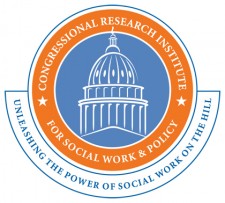There may be good news on the horizon for social workers who appreciate the need for our profession to be more involved with influencing institutions and policies. The Association for Community Organizing and Social Administration’s (ACOSA) Special Commission to Advance Macro Practice in Social Work expects to release a report and proposals this year on ways to strengthen social work macro practice. The formation of the commission was spurred by a report, Education for Macro Intervention: A Survey of Problems and Prospects, by the venerable Dr. Jack Rothman. The Rothman report garnered a great deal of attention because it documented how little attention has been given to macro practice in social work. And that macro practice instructors often felt marginalized in social work programs. Social work leaders coalesced around the critical and timely need to address these issues and created the special commission.
Once again, social work is wrestling with the tension between cause and function—how much resources and energy should be devoted to addressing the structural causes of what ails society’s most vulnerable citizens versus efforts to help these citizens cope with their various sets of circumstances. What is encouraging is this appears to a credible effort to systematically examine the state of macro practice and arrive at some proposals for real change. The special commission is being co-chaired by Dr. Darlyne Bailey, dean of the Graduate School of Social Work and Social Research at Bryn Mawr College, and Dr. Terry Mizrahi, professor and chair of Community Organizing and Program Development, Silberman School of Social Work at Hunter College and former president of the National Association of Social Workers (NASW). To date, it has received financial support from 40 schools and departments of social work and two organizations.
At issue is how much attention and resources can be devoted to macro social work practice given the overwhelming emphasis on licensing and direct services in most schools and departments of social work? Social work schools value instructors who teach courses that prepare students for licensing exams. Rothman found in his research that schools will use adjunct instructors for macro courses and reserve the bulk of their tenured positions for micro practice educators. As a result, students gravitate to micro practice because they believe this area of focus gives them the best chance for employment after graduation.
Another concern for macro practitioners is the issue of licensing. If macro practice were to grow as a share of social work there would undoubtedly be increased pressure to professionalize this specialization. Dr. Linda Plitt Donaldson and colleagues wrote in Social Work that licensing macro practice is a complicated enterprise because of the current state of variations in licensing requirements among states. Currently only three states (Michigan, Missouri, and Oklahoma) offer licenses in advanced macro practice. Given the broad range of macro practice would there be different standards for administration, community organizing, and policy? Licensing is generally seen as a means to protect the public from poorly trained practitioners. Would the same concern apply to a policy analyst who rarely interacts with the general public?
These are some of the tough issues the special commission will be grappling with going forward. What is clear in this ever changing society we live in—new technologies, graying population, transforming demographics, growing inequalities—decisions are being made in various policy deliberations and social workers need to be at the table. Gentrification and immigration are reorganizing communities and social workers need to be in the mix. We are not going to be able to “fix” people to deal with their environments, we need to be fully engaged in helping to shape their environments.
This is not a zero sum proposition. Expanding macro practice does not mean reducing the emphasis on micro practice. There will still be a need to improve the image of the profession generally and increase compensation to attract more direct service providers. By expanding macro practice, we may expand the pool and some who enter for macro practice will find micro practice more to their liking as well.
Written By Charles E. Lewis Jr., Ph.D
Good News for Macro Practice? was originally published @ Congressional Research Institute for Social Work and Policy » Charles Lewis and has been syndicated with permission.
Our authors want to hear from you! Click to leave a comment
Related Posts






